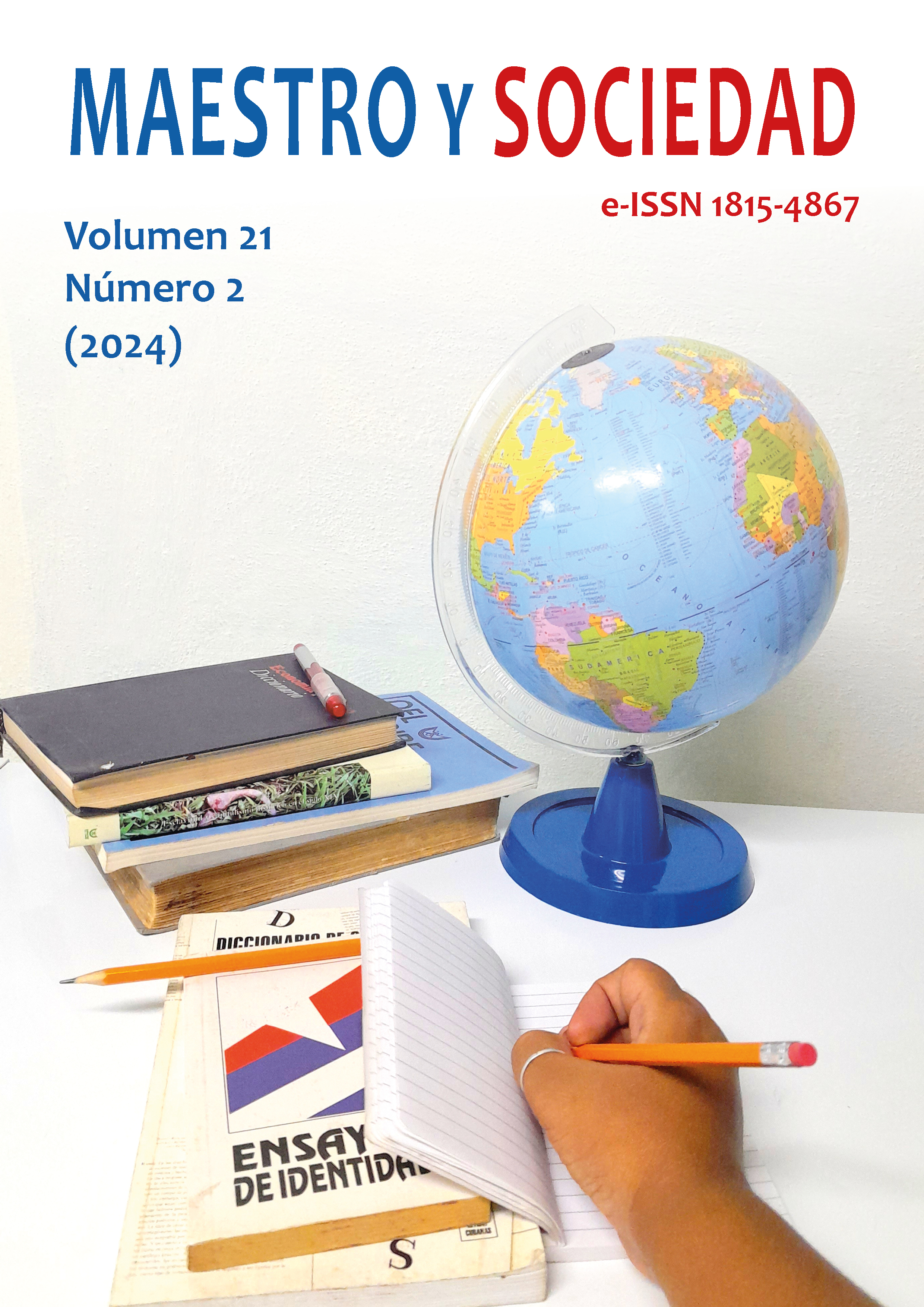Influence of digital transformation in higher education in Ecuador
Keywords:
TICs; new technologies; higher education; digital transformationAbstract
Introduction: Higher education plays the role of leading scientific and economic development in any country. With the globalization of knowledge and new technologies, it is necessary to assimilate changes in the way the teaching-learning process is carried out. Therefore, information and communications technologies (ICTs) require knowledge managers who can carry them and reinvent them in the academic framework. Materials and methods: The methodology is carried out through a bibliographic review, in which different studies on information and communications technologies in higher education were synthesized and selected. Specialized databases Scopus, Scielo, Dialnet, Google Scholar were also consulted and the inclusion criteria were articles that were related to the ICT and higher education variables; related works in the educational context, from 2000 to date. Results: ICTs can help in the construction of a global knowledge society because they allow the development of innovation capabilities that can be decisive in the development of a society and that affect sustainable development at a global level. Discussion: In this context it is necessary to reflect pedagogically on technological resources and their educational purpose. On the other hand, challenges or difficulties that different institutions face in the transition to online or online education are identified, such as the integration of synchronous and diachronic learning tools, access to technology, online competition between teachers and students, academic dishonesty. , privacy and confidentiality. Conclusions: The specialization of new technologies is the educational response to stimulating competencies, acquiring new skills and promoting the good habit of research. They promote creativity and a pace of learning that is respectful of each person, in addition to promoting teamwork and the socialization of content and ways of doing things. The university as a professional antechamber and science manager of a country is obliged to expand its educational offer to information and communications technologies to generate an interesting, motivating and interactive teaching-learning process.
References
Babieva, M. et al. (2022). Digitalization during the era of COVID-19: an analysis of the psychophysiological strain of the university students. Frontiers in Education, 7. http://doi.org/10.3389/FEDUC.2022.961046
Barnett, R. (2017). The ecological university: a feasible utopia. Routledge. scielo.sld.cu/scielo.php?script=sci_nlinks&pid=S1990-8644202000060048300000&lng=en
Barro, S. (2018). De la digitalización de las universidades a las universidades digitales. https://www.universidadsi.es/de-ladigitalizacion-de-las-universidades-a-las-universidades-digitales
García Sánchez, M., Reyes Añorve, J. y Godínez Alarcón, G. (2017). Las Tic en la educación superior, innovaciones y retos. Revista Iberoamericana de las Ciencias Sociales y Humanísticas, 6(12). DOI: 10.23913/ricsh,v612.135
García, M. M. (2018). El impacto de la transformación digital en las empresas sociales. https://www.iebschool.com/blog/impacto-transformacion-digital-empresas-sociales-digital-business/
García-Peñalvo, F. J. et al. (2021). Transformación digital en las universidades: Implicaciones de la pandemia de la COVID-19. Education in the Knowledge Society (EKS), 22, e25465. https://doi.org/10.14201/eks.25465
Organización de las Naciones Unidas para la Educación, la Ciencia y la Cultura. (2005). Hacia las sociedades del Conocimiento. http://unescodoc.unesco.org/images/0014/001419/141908s.pdf
Pulido, A. (2019). La universidad al otro lado del espejo. Blog sobre Futuro e Innovación. https://www.antoniopulido.es/la-universidad-al-otro-lado-del-espejo/
Turbnull, M. et al. (2021). Transitioning to E-Learning during the COVID-19 pandemic: How have Higher Education Institutions responded to the challenge? https://www.researchgate.net/publication/352703626_Transitioning_to_E Learning_during_the_COVID19_pandemic_How_have_Higher_Education_Institutions_responded_to_the_challenge
Published
How to Cite
Issue
Section
License
Copyright (c) 2024 Carlos Humberto Reyes Vera, Byron Fernando Chere Quiñónez, Fernanda Justine Quinteros Cevallos, Rosalba Mercedes Lara Tambaco

This work is licensed under a Creative Commons Attribution-NonCommercial-NoDerivatives 4.0 International License.
This journal provides immediate open access to its content, based on the principle that offering the public free access to research helps a greater global exchange of knowledge. Each author is responsible for the content of each of their articles.



























 Universidad de Oriente
Universidad de Oriente 